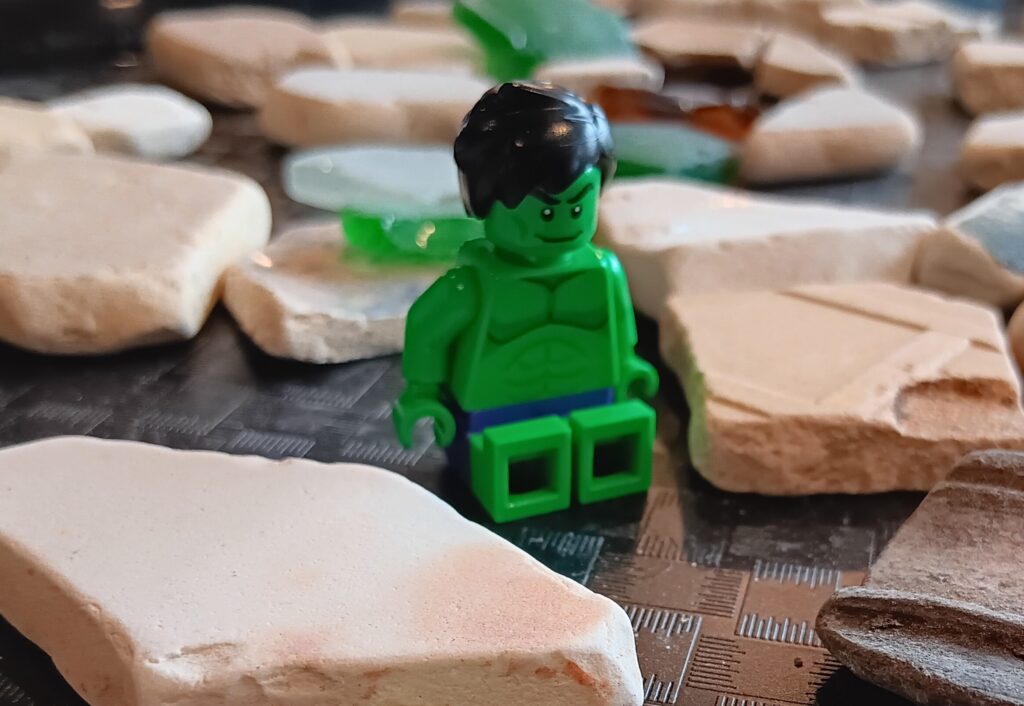This blog was reposted from Apolitical where you can continue the discussion around innovative ways to do policy development in their “Adaptive policymaker” community of practice.
In July 2023, the Wellcome Trust Policy Lab funded four creative approaches for policy development. Fast forward seven months and the Wellcome Policy Festival brought those ideas to life. Over the course of an immersive and interactive day at the Design Museum in London, we were able to experience first-hand just how powerful these methods could be.

This article previews four approaches from Thumbi Labs, Scientia Scripta, Monash University and the Red Cross Red Crescent Climate Centre. Each approach is designed to overcome a common challenge in policy development processes — what they share is an experiential approach designed for maximum impact.
You can read more about each method in more detail at the links provided throughout, and join the conversation about experimental methods for policy development through the Apolitical community of practice.
1. Overcoming hierarchies and being heard
A frequent problem when collating evidence for policy development is that whatever approach you take, you risk missing out on a diversity of perspectives. Perhaps you’re focusing on published academic papers, or reports prepared by special interest groups, or your own personal networks – it’s hard to know whether there are voices you should be hearing from who are under-represented.
Scientia Scipta’s mosaic building approach aims to breakdown hierarchies, specifically in the way roundtables and similar face-to-face evidence gathering sessions are facilitated. The simple act of having a physical object and placing this as part of an individual or group mosaic meant suddenly your perspective in that room was equal to everyone else. Your piece in that mosaic, and your reason for placing it, was just as important as the rest of the pieces of the puzzle. The process of putting that collaborative puzzle together ensured individual voices didn’t drown out the rest of the group, and people had a protected space to get across their views.
2. Serious games for systems thinking
Systems are complex because there are so many different parts acting and impacting each other all at once. Trying to explain that complexity is hard, even with the most fabulous diagrams.
Like so many of the workshops at the Festival, Thumbi Labs’ serious games focused on creating exciting, interactive sessions that help people understand ideas through feeling and experiencing them, rather than explanation. In this case, it was systems thinking.
Take a city as a system, for example. Imagine being asked to tell as many stories as you could about your experiences of transport, community, wellbeing, housing, health, safety (and more) in a city.
After a while, the stories start to overlap, and you can appreciate how the parts of the system interact. A story about housing can be about well-being, health or community. Or a story about transport can become a story about safety. Throw in some props, points and a honeycomb scorecard, and you’ve got a serious game that can bring more stakeholders into the policy development process and unlock deeper understanding of a system.
3. Making it memorable
All the creative approaches demonstrated at the Policy Festival shared a common feature: they were very memorable. There’s no doubt that, compared to your usual academic-policy roundtable, all these approaches would live long in the memory – and perhaps that’s half the battle. One of the most memorable sessions of the day was run by the Red Cross Red Crescent Climate Centre and showed examples of how humour and acrobatics can help create meaningful policy dialogues.
“Humour can reinforce a message in the most pleasant way possible, with laughter. When someone uses laughter to underscore a serious point, it can be compelling, persuasive and memorable.”
While the shared experience of the monotony of traditional policy discussions might foster a sense of camaraderie, a quicker route to building that trust and togetherness which is so vital in fostering meaningful policy dialogue might be via more unconventional means.
4. Feeling the future
As humans, we are hardwired to see only what’s right in front of us. There’s neurological research to suggest that, once we start projecting more than 12 months ahead, we start to imagine ourselves as a different person. That tendency can frustrate a more sustainable, long-term perspective in policy development.
But if we’re all physiologically hardwired to just see a horizon that’s 12 months ahead, how should we expect stakeholders in the policy process — from ministers to citizens — to engage with evidence or outcomes that are projected much further out?
The Tomorrow Party, from Monash Unviersity, is a creative futures method that helps people to create and experience the future much more intimately. The method is underpinned by Maori philosophy which sees time as non-linear. Using improvisational storytelling, participants imagine and describe what a range of future scenarios might look like and what it took to get there. The speculative, unscripted stories you’re sharing and hearing sharing really do transport you to the future. Once it’s over, you see the present in a new way, which can spark ideas and urgency.
The rise of experimental policy design
The heavily-footnoted PDF will always have its place in policy development. But that doesn’t mean we can’t inject a little creativity into the processes that happen around it, particularly when it comes to consulting stakeholders who aren’t always represented in traditional settings.
Experimental methods for policy design are gaining momentum and it’s exciting to see an influential institution like the Wellcome Trust put their resources and research rigour behind these exciting projects.
If you’d like to share your experiences of experimental policy methods, we’re hosting an ongoing conversation on the Apolitical policymakers’ community of practice.


